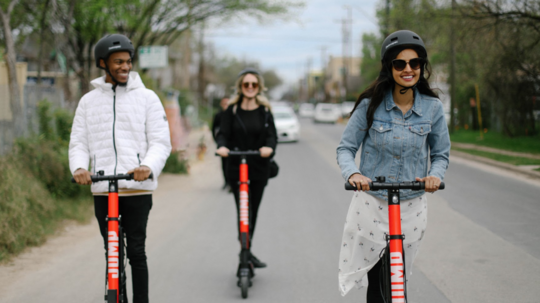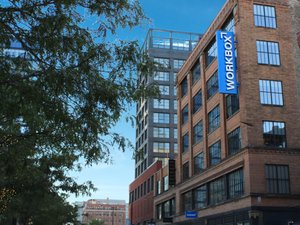
Electric scooters are returning to Chicago this summer in a second scooter-sharing pilot that will be available in more neighborhoods.
The pilot will have four times as many scooters as last year's program and be available in most areas of the city, said Michael Claffey, the director of public affairs at the Chicago Department of Transportation.
The only parts of the city where scooters will not operate are the lakefront, the 606 trail, O'Hare Airport and the central business district. The central business district region is bounded by Chicago Avenue on the north, Roosevelt Road on the south, Halsted Street on the west, with another western boundary on Clark between Chicago and Division Street.
The City of Chicago is asking scooter companies that participated in last year’s pilot to apply by June 25. Just three vendors will be chosen and participants will be announced in July, Claffey said. The pilot is expected to have about 10,000 scooters, meaning each vendor will supply about 3,300 devices. The program is expected to begin at the end of July or early August, Claffey said.
Last year’s vendors included popular e-scooter providers like Bird, Lime, VeoRide and Lyft. The pilot region was limited, though. There were only 3,500 scooters in the program and they mainly operated on the West and South sides of the city. After the pilot ended, the city collected feedback from riders and residents, which generally showed favorability for the method of transportation.
During last summer’s pilot, more than 821,000 rides were taken mostly during the evening rush period on weekdays and between 3 p.m. and 4 p.m. on weekends, according to a study by the Department of Business Affairs and Consumer Protection (BACP) and the CDOT. The data showed that Chicago hospitals reported 192 injuries related to scooters during the pilot.

“The goal of the second pilot is to apply lessons learned from the first pilot and focus on issues of equity, parking solutions and safety, especially so during this time of the unprecedented Covid-19 health crisis,” Claffey said in an email to Chicago Inno.
To address concerns of how scooter-sharing could spread Covid-19, scooter companies are required to disinfect scooters each time a staff member comes in contact with one. Additionally, riders are encouraged to wear gloves and wash or disinfect hands after each use.
The city said it aims to use the second pilot to identify ways to expand access to safe, reliable and equitable mobility options for Chicagoans. But the city also wants to address complaints some residents had, such as sidewalk clutter, equity and company compliance. The long-term goal of the second pilot is to determine if Chicago creates a permanent scooter-sharing license.
City guidelines ban scooters from being ridden on sidewalks and being parked in a sidewalk path. Riders are required to use bike lanes and obey all traffic laws. A new rule also requires all scooters to be locked to something while not in use, including a bike rack or other fixed object.
Unlike last year’s pilot, scooter vendors will not be required to round up their scooters every night, but they will not be available for use between 10 p.m. and 5 a.m., Claffey said.
Similar to last year’s pilot, the city has designated equity priority areas, which are mainly located on the South and West sides. Vendors will be required to deploy 50% of their scooters in these designated areas, Claffey said.








